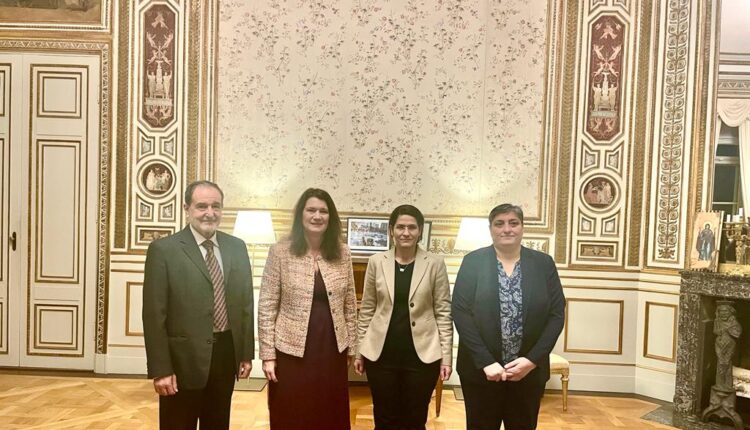The Autonomous Administration of North and East Syria (AANES) said on Saturday that the statement by the new Swedish Foreign Minister was disappointing and made to “placate Turkey” in order to approve Sweden’s membership in NATO.
This came in a press release made by the AANES Foreign Relations Department, in which it said “We were disappointed by the statement of the new Swedish Foreign Minister, Mr. Tobias Billström,” about halting support for the Kurds in Syria, the People’s Protection Units (YPG) and Women’s Protection Units (YPJ).
Tobias Billström told state broadcaster Swedish Radio on Saturday that his country would change its stance towards the Kurdish units in northeastern Syria, claiming that they are related to the Kurdish Worker Party (PKK).
The Foreign Relations Department stressed people of north and east Syria and the AANES have been fighting terrorism “on behalf of all humanity” with the aim of achieving “peace and security.”
It went further, saying Sweden is known over time for its support to “oppressed people fighting for democracy” and that its interests should not be to the detriment of those people.
The new stance will undermine the anti-terror campaign and makes Sweden a partner to Turkey that supports terrorist groups in Syria.
However, the new position evoked a wave of condemnation among the former centre-left government in Stockholm and Kurdish activists.
“The government’s handling of the NATO process is both worrying and excruciating,” said Morgan Johansson, former Social Democrat justice minister.
The AANES and Swedish government and people have developed friendly ties to “achieve stability and creating a democratic solution for the Syrian crisis,” according to the Department of Foreign Affairs in AANES.
The AANES was first formed in 2014 in the Kurdish-majority regions of Afrin, Kobani and Jazira in northern Syria following the withdrawal of the government forces. Later, it was expanded to Manbij, Tabqa, Raqqa, Hasakah and Deir ez-Zor after the Syrian Democratic Forces (SDF) defeated ISIS militarily.
In 2020, the Swedish Foreign Minister, Ann Linde, said that her country will work to involve the Syrian Democratic Council (SDC) and the AANES in the United Nations meetings regarding the political process in Syria.
On October 13th of the same year, Linde repeated, from Ankara, the European Union’s calls for Turkey to withdraw its forces from northeastern Syria.
In an interview with North Press, Badran Chia Kurd, co-chair of the AANES Foreign Relations Department, said over the past decades, Sweden has been known for its support of Kurdish causes in the region; and this confirms its positive vision to “always stand with persecuted peoples who wish to obtain their legitimate rights.”
In June, the North Atlantic Treaty Organization (NATO) announced a trilateral memorandum between Turkey, Sweden and Finland, paving the way for Finland and Sweden’s NATO membership, the issue that Turkey had rejected under the pretext that they support the Kurdish Workers Party (PKK), the Democratic Union Party (PYD) and the People’s Protection Units (YPG).
The PYD is a Kurdish political party established in northern Syria on Sept. 20th, 2003. It operates in Kurdish-majority areas in Syria, and Turkey claims it to be Syria’s branch of the PKK.
The YPG is a mainly-Kurdish group affiliated with the Syrian Democratic Forces (SDF) that was formed in 2011. It mainly operates in areas run by the AANES, also known as Rojava.
On September 30th, Sweden announced a lifting arms embargo and military equipment on Turkey.
Finland and Sweden formally applied to join NATO on May 18th prompted by Russia’s invasion of Ukraine in February but were met with huge rejection from Turkey.
This article was edited by The Syrian Observer. The Syrian Observer has not verified the content of this story. Responsibility for the information and views set out in this article lies entirely with the author.


